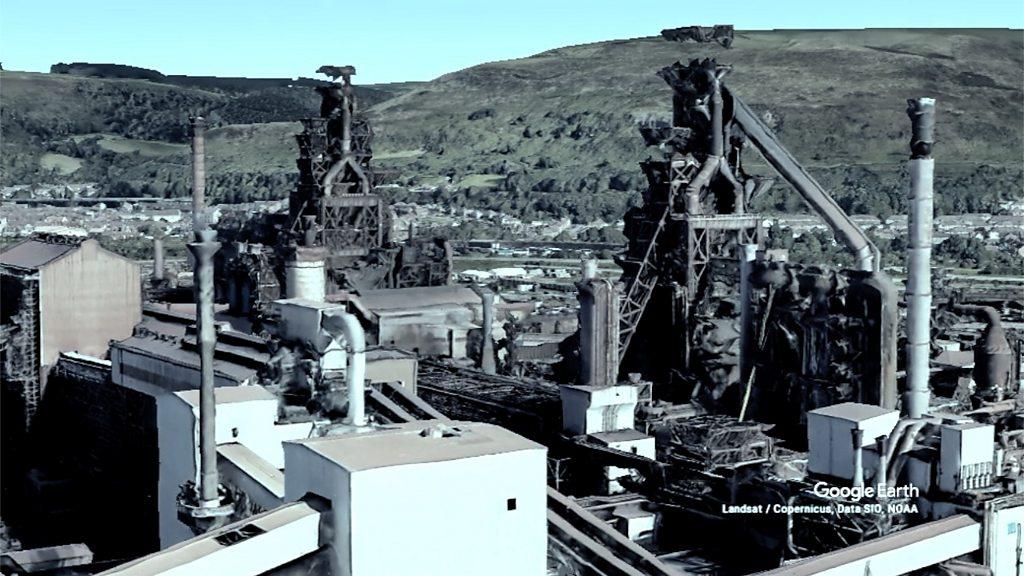Tata Steel workers protest over proposed job losses
- Published
"Tata Steel no way, UK steel is here to stay": Hundreds protest steel job losses
Hundreds of people have taken to the streets to protest at the proposed loss of thousands of steel jobs.
Tata said 2,423 jobs across the UK are at risk, with 1,929 of those in Port Talbot, which employs 3,859 people.
One of the firm's bosses said much of its operation at the site is at "the end of life" and leading to losses of £1.7m a day.
A protest was held in Port Talbot, while workers from the Llanwern site have marched in Newport city centre.
Tata employs 917 there, with 113 jobs at risk, and about 500 people took part.
Speaking at the Port Talbot rally, Unite general secretary Sharon Graham said there have been almost 6,400 jobs lost in the British steel industry since 2015.
"Together our politicians have sat by and watched our steel industry be decimated," she said.
"They have let communities wither on the vine. They have failed us all."
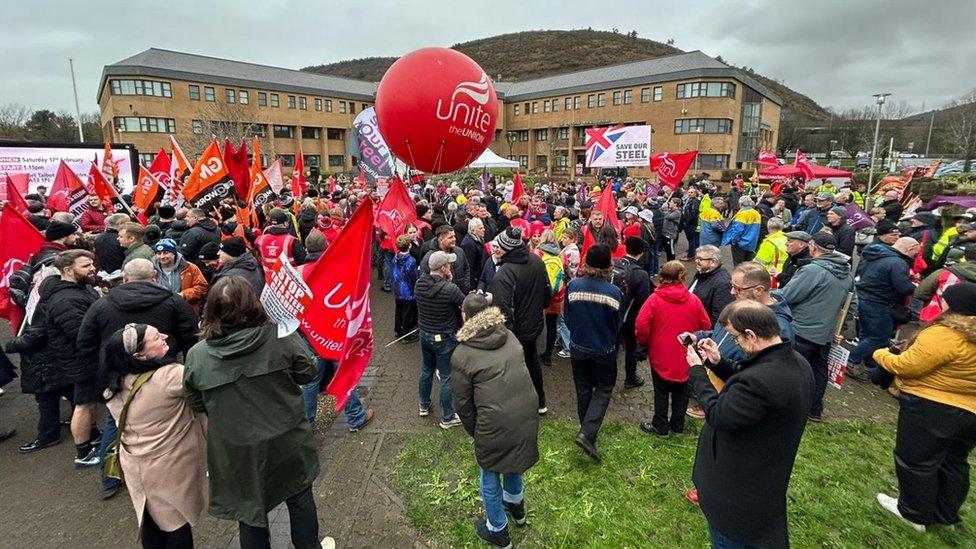
People in Port Talbot and the surrounding area were determined to have their voices heard
"Today showed that Port Talbot, Newport and south Wales - steelworkers, politicians, local businesses and community groups - are united in opposing Tata's bad deal for steel, which would be disastrous not just for communities here which have been built on steel, but for the UK as a whole," said Community union General Secretary Roy Rickhuss.
He added: "There is so much at stake here, and the weeks and months ahead are absolutely critical for our industry, our steel communities, and the country as a whole."
Chairman of the multi-union committee at Port Talbot, Alan Coombs described "uncertain times".
He added: "Many of us are anxious about what lies ahead for Port Talbot. One thing is certain though - steelworkers will fight tooth and nail for the future of our industry and our livelihoods."
This is not just being felt in Port Talbot, but also in south east Wales, as his counterpart in Llanwern Reg Gutteridge explained.
"Wherever you go in Gwent you will meet someone with a connection to the steel industry - from those who worked or had loved ones employed at sites like Pontymister, Ebbw Vale, Tredegar or Orb which are sadly no longer with us, or those with a connection to the proud workforce at Llanwern today," he said.
"Llanwern has always been a hub for skilled and well-paid local employment in our area, and is still at the cutting edge of steel technology."
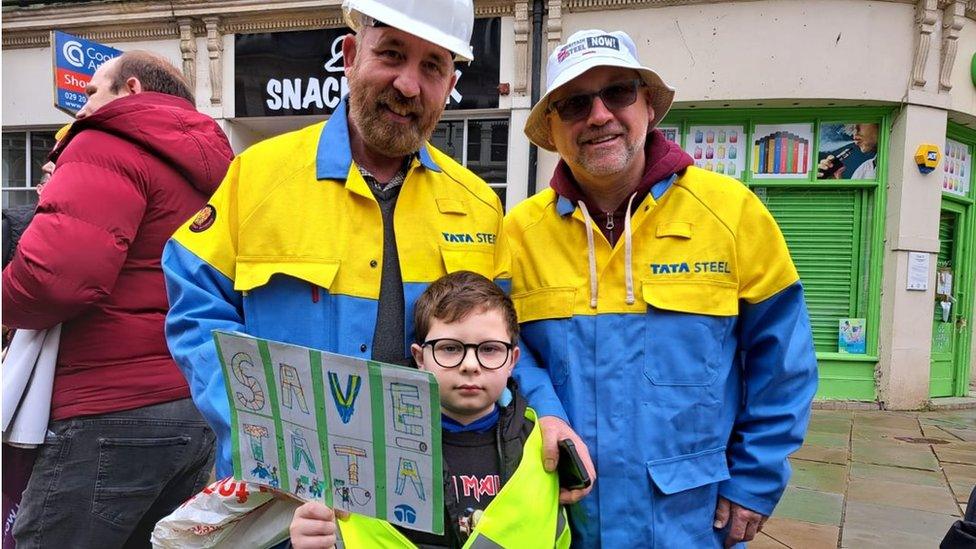
Protestors are out on the streets of Newport
The protests came after unions decided to ballot members on strike action over the proposals.
"I went into the steel industry straight from school, it's all I've ever known, it's my livelihood," said Jason Wyatt, an electrical engineer and Unite union representative at Port Talbot.
Speaking to BBC Radio Wales Breakfast, he said morale among workers was "very low", describing proposals as the "decimation of our industry and by connection the decimation of the community".
While he said Tata had not told workers which departments would be affected by the job cuts, the firm plans to replace existing, and heavily polluting, blast furnaces at the site with greener electric arc furnaces.
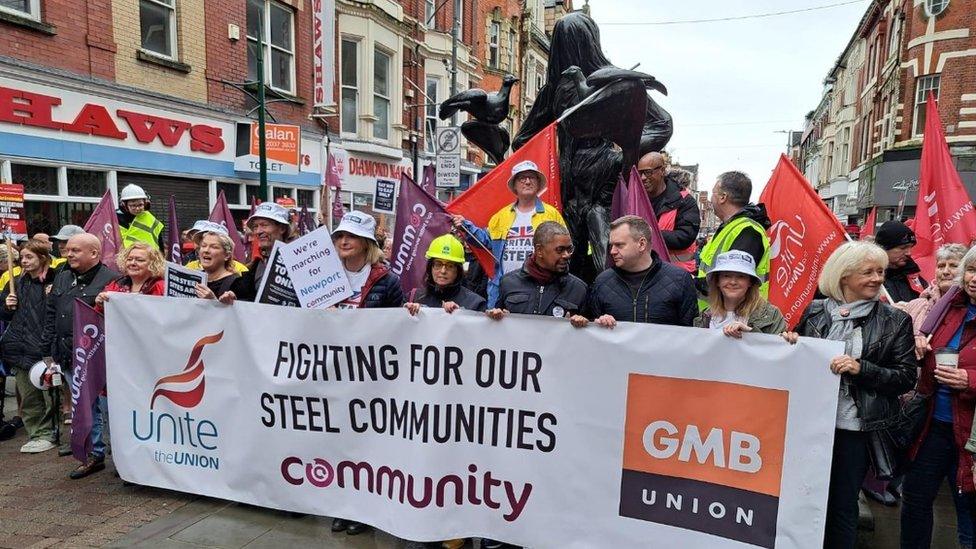
Politicians joined the steelworkers in Newport city centre
It said: "Much of our existing iron and steelmaking operation in Port Talbot is at the end of its life, is unreliable and inefficient, and contributing to losses of £1.7m a day in the last quarter alone.
"Our restructuring proposals would mean that we are able to sustain the business as we transition to new electric arc furnace technology.
"We believe we have a very exciting future ahead, providing the high quality, low-CO2 steels that our customers in the UK and overseas are so desperate for."
Its plans will see a phased closure of the site's two blast furnaces, with the first furnace and coke ovens expected to cease operation by the middle of the year.
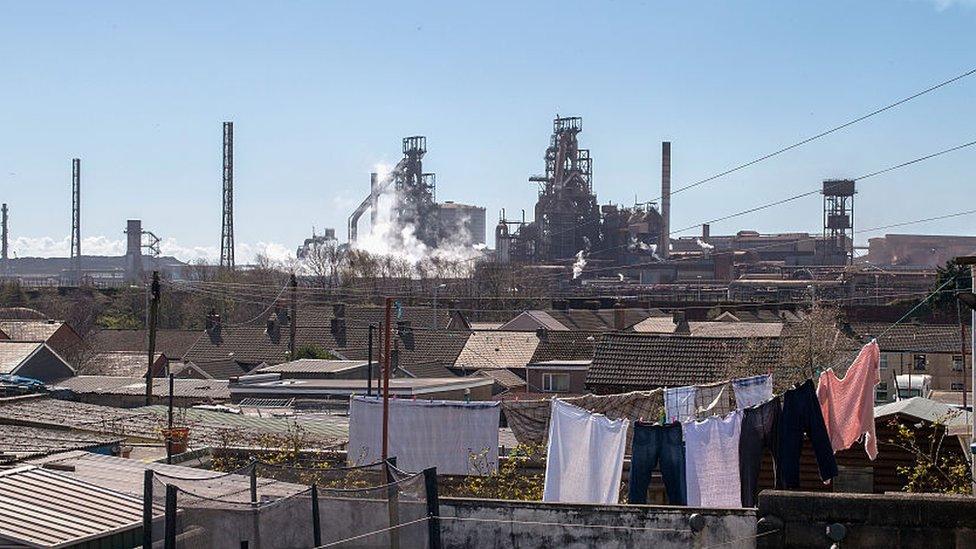
Of Tata's announced job losses, the bulk are expected to come from Port Talbot
A winding down of its remaining heavy-end assets will follow in the latter half of 2024.
The UK government has said it will contribute £500m towards the £1.25bn cost of the electric furnace.
However, Aberavon MP Stephen Kinnock described this plan as "shoddy" and "unacceptable".
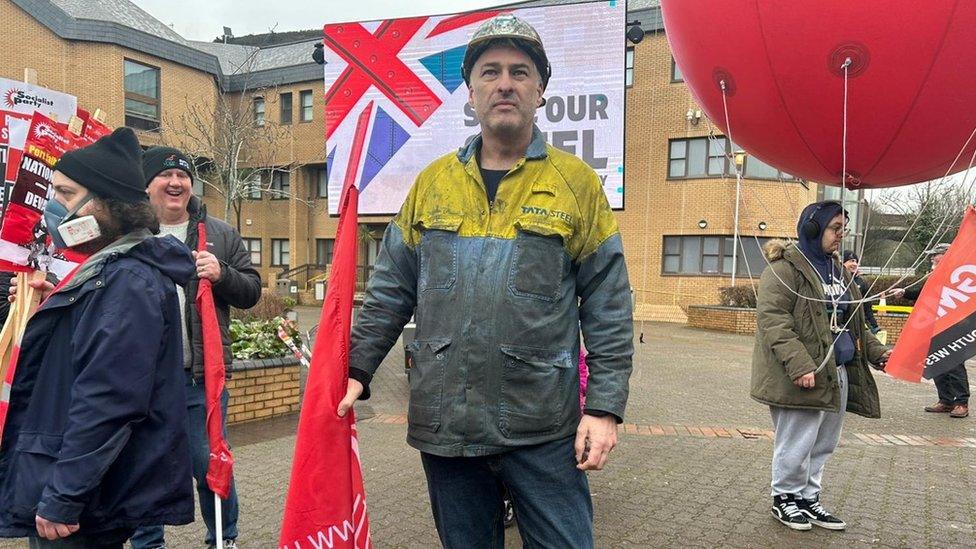
Port Talbot workers have described the steelworkers as at the heart of the local community
Describing the steel industry as "the beating heart of our economy and community", he said: "The deal that's been done is not the right one because it doesn't work in terms of decarbonisation.
"It involves importing (instead) millions of tonnes of steel from India where the steel production process is a lot more dirty and carbon intensive than it is in the UK."
While he agreed one blast furnace and the coke ovens were reaching their "end of life", blast furnace four has "lots of life left".
But Conservative Welsh Secretary David TC Davies said ministers were forced to "choose between 3,000 people losing their jobs and 17,500 people losing their jobs" in giving their backing to the changes.
The UK government said it would help staff at a "concerning time for Tata's employees", adding it had committed £80m in direct support for those affected.
The Welsh government has called for further talks on a longer transition at Port Talbot to protect jobs.
- Published22 January 2024

- Published21 January 2024
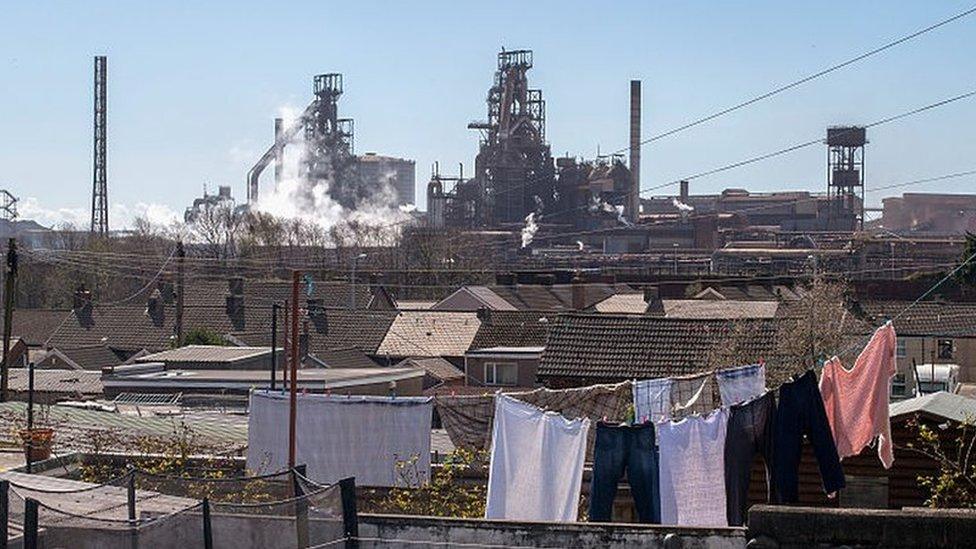
- Published18 January 2024
